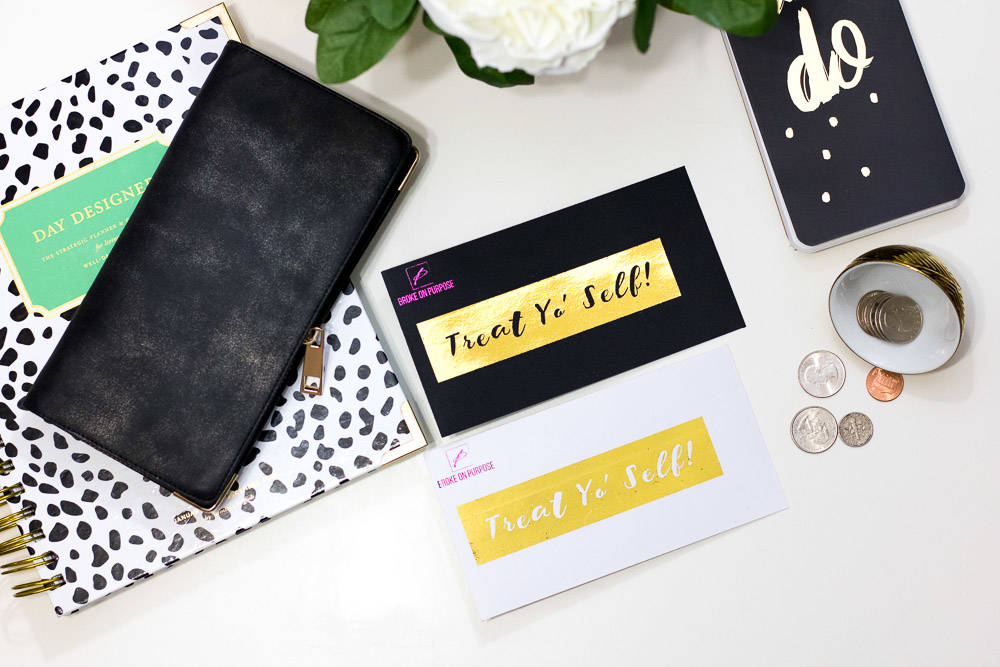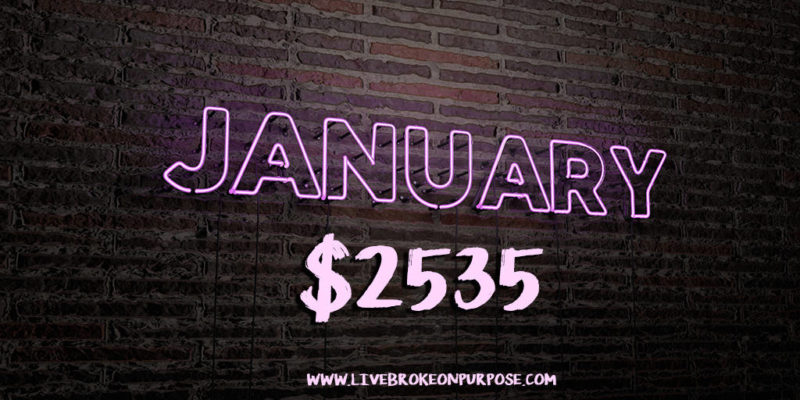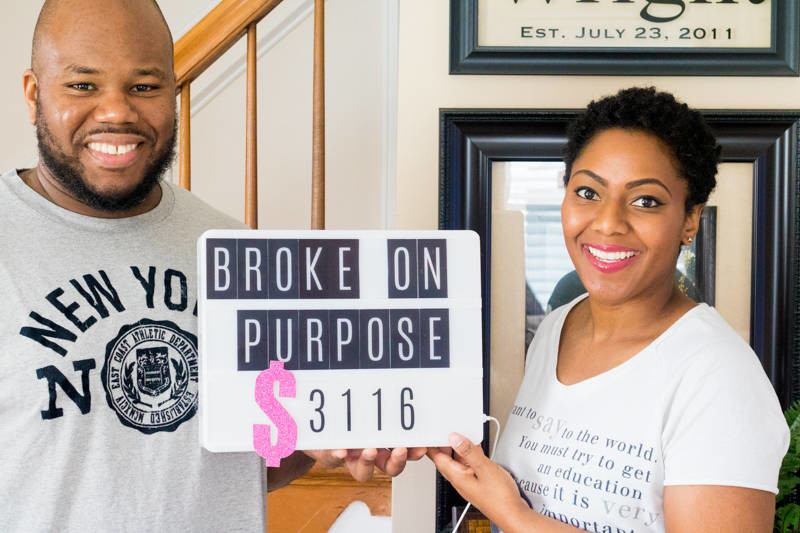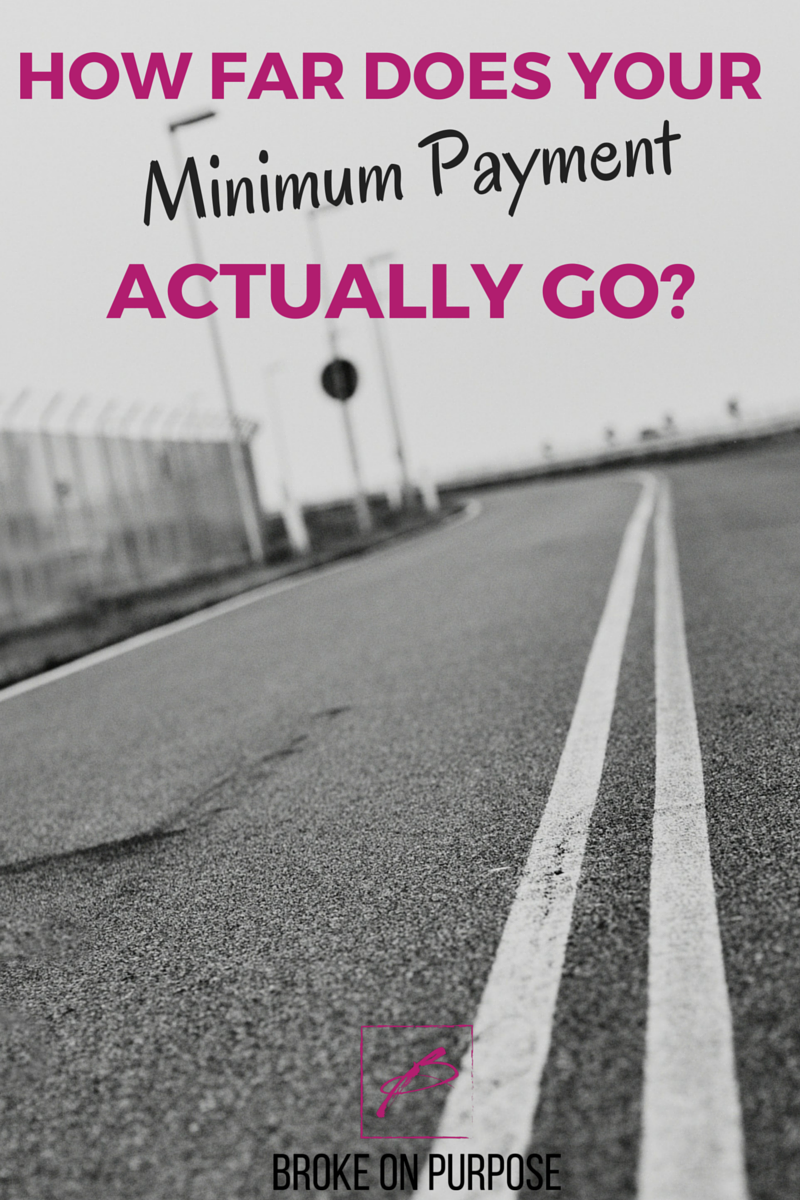
If you knew me before I started Broke on Purpose, then you knew that I was Spender. I loved to buy new things for our home, new clothes, handbags, accessories, you name it I probably bought it. I was an addict and while you normally don’t lump spending up there with abusing drugs or some other heinous addiction it’s the same thing. I was abusing my wallet and my finances. I got my high from scoring what I thought was a great deal on an item. One of the hardest things for me to do after we started Broke on Purpose was to reign in my spending. Even though I quit shopping cold turkey the first month, I still had these impulses that drove me to go to my favorite online store and go on a shopping spree. I’d add things to my cart and even have the audacity to look for a coupon code to make sure I was getting the best deal, but because of Broke on Purpose, I could never allow myself to go through with the purchase of these items. To this day, and because I’m human, I still deal with moments where I find myself wanting to buy things we particularly don’t need just to be buying them.
[ad name=”HTML”]Financial Self-Sabotage is a problem that many people who are working towards paying off debt or building savings often face without even realizing it. It occurs when one makes the choice to do something with their money that works against the guidelines of their budget and future financial goals. For example, let’s say you’re living at home with your parents to save up money and pay down bills, but instead of saving up money like you promised you spend it on things you don’t need and take vacations. While you consider these things to be harmless treats for yourself what you’re doing is committing financial self-sabotage. By derailing from the original goals, you established you now set yourself back in time and money not only inconveniencing yourself but others around you. The same thing goes for choosing to only pay the minimum on a bill when you have the money to pay it off, or purchasing concert tickets on a credit card you’ve been working to pay off because you don’t want to miss out. Self-sabotage happens in all areas of our lives and not just within our finances. It’s when that “cheat day” turns into a “cheat week”. Except in finances getting off track can set you back more than a couple of pounds. Depending on the situation the choices you make can set you back months or even years.
You’re probably wondering “how am I supposed to enjoy life and pay down debt at the same time?”. This is a question I often get during my Broke on Purpose Consultations. One of the things that I tell my clients is there is a fine line between enjoying a life that you can afford and to enjoying a life that other people want you to be able to afford, also properly termed “Keeping up with the Joneses” This is one of the main reasons why your budget and your debt payoff plan are in place. The reason why you’re in this mess probably has a lot to do with trying to afford a life other people wanted you to afford. Here are four ways to you can stop Financial Self-sabotage and stay on track with your money goals.
Stop Making Excuses.
One of the quickest ways to go down the financial self-sabotage road is by making excuses. Excuses will put you in a negative space and down a disastrous path.
“I can’t afford to move out because apartments are too expensive so I may as well enjoy life while living with my parents.”
“I don’t make enough money to do a budget; I don’t need a piece fo paper telling me I’m broke, I already know that.”
“I don’t have time to look at my bills, so that’s why I missed a payment.”
Instead of self-loathing adopt a positive mantra and uses phrases like “I can” or “I will” when you talk about your goals. You’ll find that your positivity will be infectious and change other areas of your life.
Keep your eye on the goal.
When you feel the need to go out and spend money that’s not in your budget remind yourself of the goal. You’ll find that paying off debt or achieving a savings goal will give your more joy than the item you were going to purchase. Also, think about your journey remember how it felt when you first started and you thought there was no way out. Look at how much debt you’ve paid off so far. Keep reminders everywhere to help you stay on track.
Identify your Spending Triggers.
I found that my need to spend was triggered by emails I’d get from stores. To curb this, I had my email address removed from their subscription list. Now If I don’t know about the sale, I don’t feel the need to spend. Identify your spending triggers and get rid of them. If it’s friends or family have a talk with them and explain how you would appreciate their help and support staying on track In some instances, you could always limit your time around those people if you find they are doing more harm than good.
Plan out your spending.
I have several big ticket items on my “wish list”. Instead of blowing our budget and going out to buy them right away I’ve been saving small amounts of my “allowance/ mad money” each month. By creating a savings plan, you’re not only proving to yourself that you can control impulse spending, but you’re also proving to yourself that you are in charge of your finances. I’ve found that most of the times items that I want will go on sale if I’m patient thus allowing me to spend less money than I originally planned.
You can also plan out your spending by using the Broke on Purpose Money Envelopes. The “Treat Yo’ Self” envelope allows you to do just that, treat yourself based on the amount of money available in the envelope. This way you can still take a shopping trip the mall and not worry about overspending.





Great content and insightful advice. I found your blog after listening to your His and Her Money podcast. Thanks for what you do!